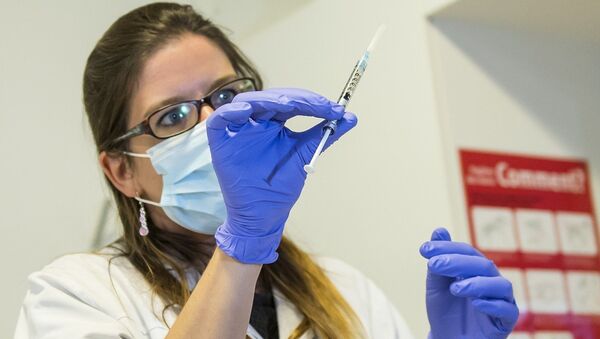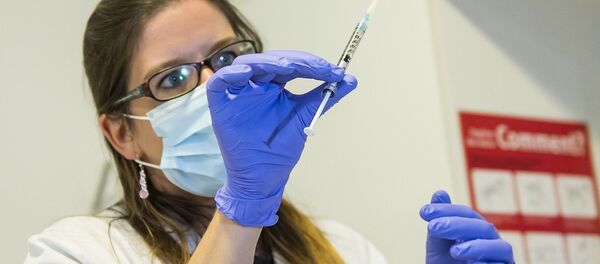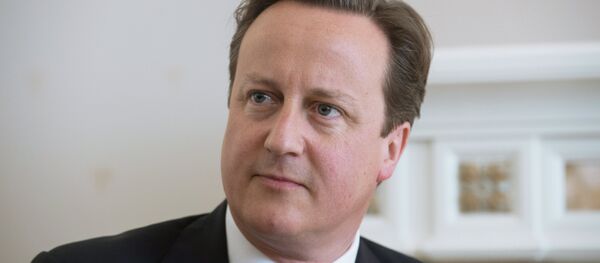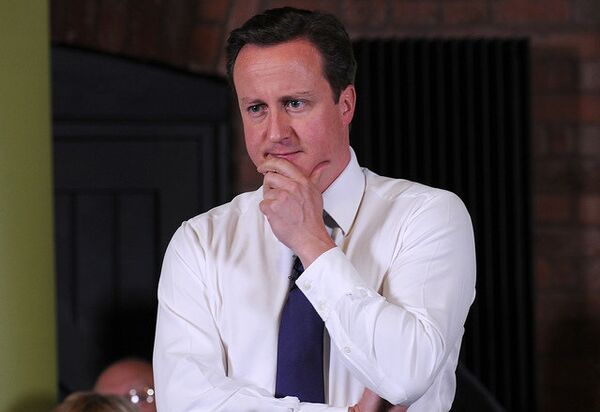EDINBURGH, December 31, (Sputnik), Mark Hirst – Robin May a Professor in Infectious Disease at the University of Birmingham has told Sputnik News that despite an infected Ebola nurse passing testing procedures on her return to the UK, the country’s screening protocols remain "robust" and the risk to others "extremely low."
"Indeed I believe that this particular patient was screened repeatedly at Heathrow prior to onward journey, but the point is that she was at an early stage of the disease and so had no detectable symptoms," May added. "This also means that the risk to others is extremely low, since she was essentially in good health during her journey and reported to hospital, hence appropriate containment, immediately once symptoms developed."
But despite those reassurances the Department for Health in England has confirmed it will now review its screening processes following the UK’s first confirmed case of Ebola.
Pauline Cafferkey, an NHS nurse who was working in Serra Leone with the charity Save the Children, returned to the UK Monday, transiting through Heathrow airport and onwards to Glasgow.
Professor May told Sputnik that move did not imply a lack of appropriate facilities able to deal with Ebola in Scotland, but rather that the Royal Free Hospital had recent experience of dealing with another nurse who was confirmed to have the disease whilst still in West Africa and who was subsequently flown back to the UK for specialist treatment.
"The UK has several isolation facilities for dealing with such patients. However, I imagine that the patient has been moved to the Royal Free because staff at that site have recent experience of dealing with an Ebola patient – the nurse William Pooley – and it obviously makes sense to make use of their first-hand expertise," May said.
Further details of the screening process Cafferkey underwent at Heathrow have now emerged. Dr Martin Deahl, who was travelling with the infected nurse and also working for Save the Children told the BBC Wednesday, "The whole process was a bit chaotic. Considering they knew there was a big group of us coming back there were probably too few [screening] staff."
Professor May told Sputnik that despite the risk such work was vital and said the world owed them a "considerable debt of gratitude".
"I think it is important to pay tribute to the extraordinarily selfless behaviour of the hundreds of men and women, like Nurse Cafferkey and Nurse Pooley, who have voluntarily put themselves at risk in order to help the people of West Africa," May said.
"In doing so, they are not only helping gravely ill patients in affected countries, but they are also helping to stem the outbreak in the region and consequently reducing the risk to the rest of the world; those of us who live in the rest of the world owe them a very considerable debt of gratitude," May told Sputnik.




